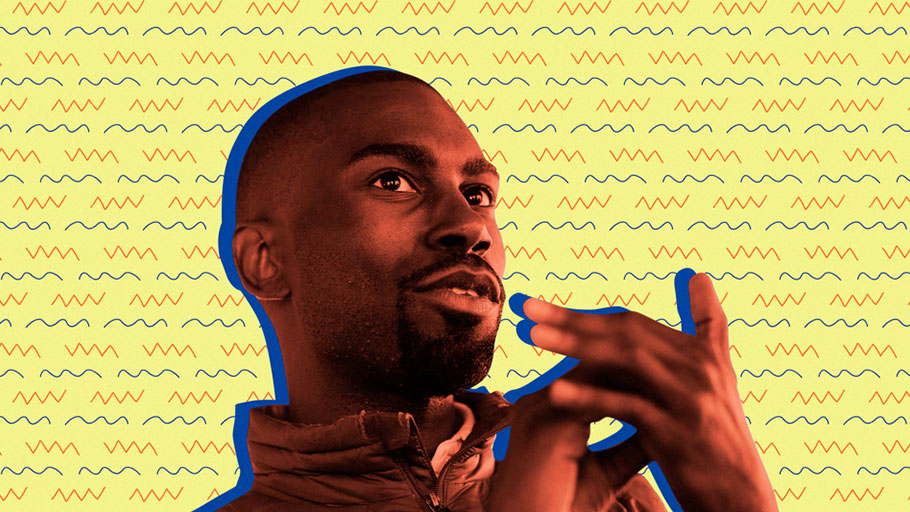Image by Patrick Semansky, AP, Katie Martin, The Atlantic
How the activist made a career of social justice.
By Lolade Fadulu, The Atlantic —
In 2015, DeRay McKesson quit his $110,000-a-year job as a human-resources official at Minneapolis Public Schools and moved to St. Louis, Missouri, to join the second year of protests in Ferguson over the fatal shooting of Michael Brown by a white police officer. Soon afterward, McKesson, along with other activists, launched Campaign Zero, a ten-point plan to reform police departments.
McKesson says leaving a traditional office job for full-time activism was the hardest career decision of his life. But he’d had a long history in activism. In middle school and high school, McKesson participated in student government and on Baltimore’s student council, in which students give feedback to local and state-level school administrators. At Bowdoin, the liberal-arts college, McKesson was the president of his class, before graduating and becoming a teacher. He’s now the host of the political podcast Pod Save the People.
I recently spoke with McKesson about his disorienting move to full-time activism, the skills needed to lead a movement, and what being in a classroom taught him about the importance of failure. This interview has been lightly condensed for length and clarity.
Lolade Fadulu: Was there something you envisioned yourself doing other than organizing?
DeRay McKesson: I think my imagination about jobs was pretty limited. There were so few jobs that I actually saw people who looked like me in, that I imagined myself in, that I think I just stopped imagining. I knew I was going to go to college, and that was sort of as far as I had imagined.
Fadulu: Why Bowdoin?
McKesson: Bowdoin was the first place that I fell in love with. When I visited, I just had never been to a place with that many resources, and that much access to information. That was stuff that you saw in movies. I didn’t know that existed in real life. Not only did it exist, but I could be a part of that.
Fadulu: While you were in college and organizing, did you have way more experience than the other people you were working with?
McKesson: I think everybody brought their own gifts. I think that I, because of student government and because of working in Baltimore, knew how to be creative with very little resources. I came in with a set of skills about how to communicate orally. I could boil complex messages down to simple messages without losing the power of the content. There were different skills that I didn’t know. I wasn’t a very good writer before college. I don’t think I was a very good reader.
Fadulu: Sometimes it seems like people can become attracted to a movement because it is momentarily popular. Were there any points in college or now where you felt disillusioned by why people got involved in certain social movements?
McKesson: In college, no. Now, yes. When we were initially in the streets in Ferguson, it was people who were willing to risk it all. We had no clue that we were going to come out on the side that we came out on. It wasn’t guaranteed this was going to spread across the country.
I think now, people realize the visibility that comes with the work. They want to do it just for the visibility. They come to the meeting. They participate. They’re definitely making signs for the protest. Then when you ask them, “What are you going to do about it?” it’s like, “I’m just going to the next protest.”
Fadulu: You didn’t necessarily notice that in college?
McKesson: Being an activist on a campus like Amherst or Bowdoin is very different from being an activist in the middle of a major city. At a small campus, the lines are just so easily marked: who has power and who doesn’t have power.
In larger society, it’s just not clear. I think the police are a great example. We sat in the street four years ago demanding accountability and justice. The way I think about accountability and justice today is so different from what I thought four years ago. Four years ago, I didn’t know anything about police unions, substantively. I didn’t know anything about police-union contracts. I didn’t know all the laws that protected the police.
Fadulu: Why did you go into teaching?
McKesson: I had done so much policy work as an organizer, and I’d done training for adults and young people. I wanted to do what now is called direct service. I wanted to actually do a concrete thing, and teaching was that for me.















